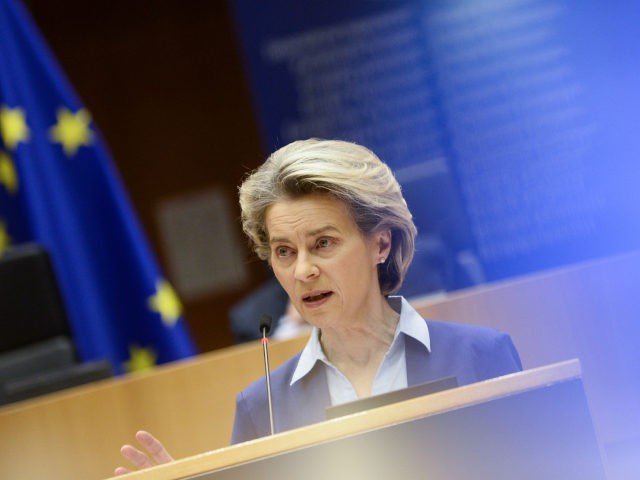The European Union has backed down from approving measures that could ban vaccine exports under contract to the United Kingdom after member states feared the reciprocal loss of components needed to produce their own doses.
On Thursday, the European Commission, led by President Ursula von der Leyen, proposed measures that would block vaccine shipments bound for outside of the bloc if the nation was already well advanced in its inoculation programme.
Despite support from France, Spain, and Italy for von der Leyen’s “vaccine export control mechanism”, the Netherlands and Belgium, with support from Germany, overruled the plans, according to The Times.
Dutch Prime Minister Mark Rutte feared that the EU blocking exports to the UK could result in a tit-for-tat, with Britain blocking vaccine components Belgium relies on in its production of the Pfizer vaccine.
Von der Leyen and nations that back her proposal demanded that the bloc’s agreement with AstraZeneca, though signed three months later than the UK’s contract, take precedent in production, even if relying on confiscating the drugs produced under contract for other countries.
“I support the fact that we must block all exports for as long as some drug companies don’t respect their commitments with Europeans,” France’s president, Emmanuel Macron, has said.
Amidst the tensions, British Health Minister Matt Hancock said that the UK’s contract was better than the EU’s, saying: “They have a ‘best efforts’ contract and we have an exclusivity deal. Our contract trumps theirs. It’s called contract law — it’s very straightforward.”
Following the summit, after her loss, Commission President von der Leyen said that drugs firms still need to “catch up” to fulfil their orders with Europe, saying: “Companies have to honour their contract to the European Union before they export to other regions in the world. And this is of course the case with AstraZeneca.”
Von der Leyen’s predecessor, Jean-Claude Juncker, criticised the former German minister for attempting to spark a “vaccine war”, which “could create major reputational damage to the EU, who used to be the world free-trade champion”.
The Europhile appeared to, unusually, defend Brexit Britain, saying: “We are not in war and we are not enemies we are allies. We have special relations with Britain — there’s room for dialogue.”

COMMENTS
Please let us know if you're having issues with commenting.